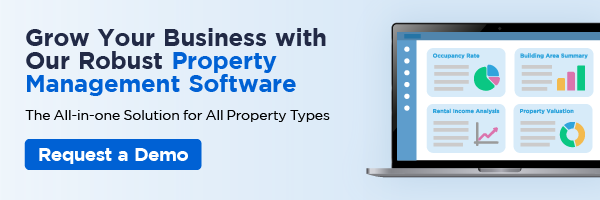Why is Digital Transformation imperative for a company’s future success?
Digital transformation is the process of integrating digital technologies into all aspects of a business to drive fundamental change in operations, culture and customer experiences. Over the past decade, Many organizations have realized the importance of digital transformation as the Internet of Things (IoT) – physical internet-connected devices – has become widespread and common in the marketplace, leading to the explosion of data and connectivity that make a significant impact on consumer behavior worldwide. The pandemic, then, served as an accelerator to speed the digitization of organizations across industries as telecommuting, online shopping, teleconferencing and digital classrooms have become the new normal. Regardless of industry, the digital revolution has forced every company to reinvent itself, making technological innovations an integral part of their success.
How Does Digital Transformation Work in Real Estate?
Digital transformation has been reshaping the business landscape, changing the way organizations, especially real estate and property management companies, do business and leading to fundamental changes in day-to-day operations. Technology used in Property is called Property Technology (PropTech). PropTech has emerged as a game-changer in the property sector as it offers a wide range of solutions and tools such as data analytics, smart building solutions, property portfolio management and lease management to address industry pain points through streamlining operations and automating workflows. By adopting and leveraging PropTech, real estate companies can address various issues ranging from construction, property management to sustainability and ESG (Environmental, Society and Governance) in an ever-evolving landscape.
4 Pillars of Developing A Successful Digital Transformation Strategy
A detailed digital transformation strategy serves as a map to guide a company to a successful digital evolution. It is important for C-suite executives and board of directors to be forward-thinking and well-prepared for executing a digital transformation strategy across their organization. Today, we will spell out five essential components of achieving successful digitalization across an organization.
1. Technology-savvy C-level Executives
When it comes to digital transformation, C-suite leadership is always the key to success. According to a study by Deloitte, 31 out of 100 organizations with a tech-savvy board (i.e. at least 33% of the board members were tech executives, held a tech or tech-related degree, or had held a tech position in the past) experienced, on average, 5% greater revenue growth over a three-year period, and 8% better year-over-year stock performance than companies with non-tech-savvy boards. Embedding technology into a business framework is an ongoing process that requires continuous efforts like monitoring and optimization to reach goals and objectives, therefore, a digital transformation strategy that runs from the top down – C-suites and board of directors – with a comprehensive plan that outlines how the organization will use technology to establish or enhance processes, culture and customer experiences across all departments, enabling resiliency in dealing with unexpected challenges and differentiation in today’s world.
2. Leverage Digital Technologies
Technology inheres in a digital transformation strategy. Adopting and utilizing digital technologies and solutions such as the Internet of Things (IoT), Generative AI, cloud computing, Virtual Reality (VR) and enterprise resources planning (ERP) software serves as one of the fundamental components to modernize an organization. Integrating these digital technologies can help automate workflow and provide business insights to lower costs, improve efficiency and enable decision-making logic. On the other hand, to choose the right technology partners and solutions, C-level executives need to map out a clear strategy including goals, budget, workflow compatibility and system scalability before searching for potential solutions.
3. A Team with Right Skill Sets
Technology doesn’t unleash the potential of digital transformation, talent does. Ten years ago, tech-related jobs were rare in the market. But with the rapid advancement of technology, emerging job roles like data analysts and digital marketing specialists have become prevalent, indicating a growing demand for tech-related skill sets in the market. However, according to a report by KPMG, 71% of companies do not assign employees mainly to tasks in the development of digital transformation, and it is the main reason why companies always struggle on the execution of their digital transformation strategy. The journey to digital transformation requires the right talent with the right skill set in place to achieve digital transformation initiatives. Undoubtedly, hiring new employees who are digitally savvy is crucial, but reskilling your existing workforce by providing adequate training and support should also not be neglected.
4. Metrics and Measurements
None of the companies that are embarking on the journey to digital transformation tells the best story with data. Although digital transformation is a continuous and adaptive process that doesn’t have a finish line, it doesn’t mean strategic goals and milestones are not necessary. Having a clear guideline to measure the progress and outcomes of initiatives can ensure a digital transformation strategy is moving in the right direction and offer C-suites a holistic view on the transition to digital. According to Mckinsey, the five metrics that executives should monitor are return on digital investments (ROI), percentage of annual technology budget spent on bold digital initiatives, time to market of digital appa, percentage of leaders’ incentives linked to digital and top technical talent attracted, promoted and retained.
Embark On/ Accelerate Your Journey to Digital Transformation with GaiaPM!
GaiaPM’s Property Management Software (PMS) and Lease Management Software drive the digital transformation of real estate companies and property management companies by streamlining operations and automating property management processes, helping property managers and real estate professionals manage their property portfolio effectively. Contact us for more information.

GaiaPM, a member of the FlexSystem Group, provides international lease and property management software designed to help you drive performance up and costs down. As a global solutions provider in over 38 countries GaiaPM, together with its proven solutions for multi-currency financials, human resources, and operations, is a business software vendor to 1 in 10 Forbes Global 2000 (May 2020), and 1 in 5 Global Fortune 500 (August 2020), operating at the intersection of new digital process and payment technologies, whether on-premise, hybrid or cloud, to provide you with iterative opportunities for value creation.




